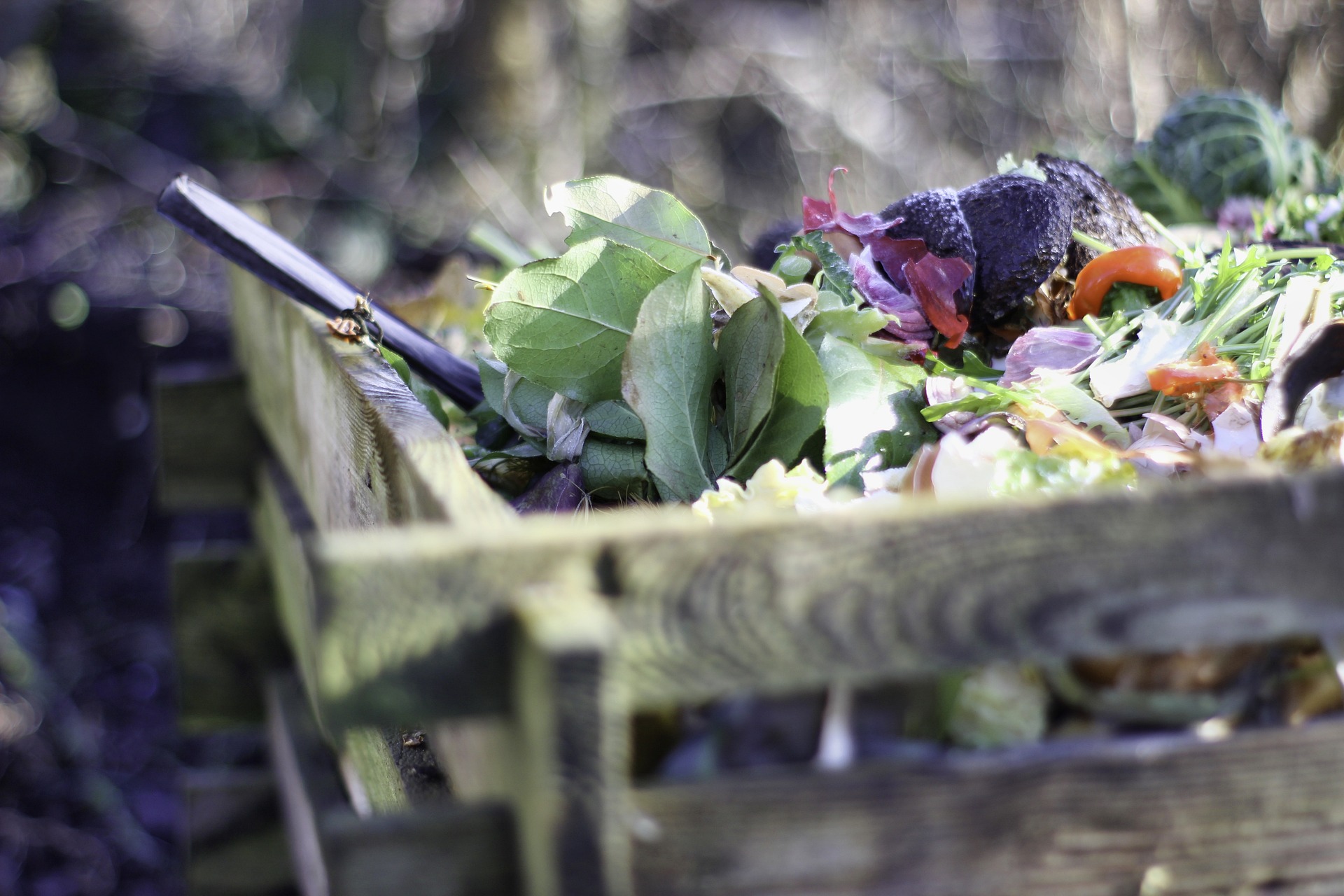Discover the magic of composting, a transformative process that turns everyday organic materials into a nutrient-packed powerhouse for your garden.
By composting at home, you’ll not only reduce waste and lower your carbon footprint but also enrich your soil with dark, crumbly, and earthy-smelling compost.
In this article, we’ll explore composting benefits and all the key information you need to consider creating your own home composting area.
What is composting?
Composting is a remarkable process that transforms organic materials like leaves and kitchen scraps into a nutrient-dense, soil-enhancing substance. By creating an optimal environment for decomposition, composting accelerates the breakdown of organic matter with the help of microorganisms, such as bacteria, fungi, worms, and other tiny critters.
The end product, known as compost or “black gold,” is a fertile, nutrient-rich addition to gardens, horticulture, and agriculture. Home composting is a sustainable way to reduce waste and generate a valuable soil amendment, contributing to a healthier environment and thriving plants.
What are the benefits of composting?
There are many benefits of making your own compost. Here are some of the many benefits you can reap with a compost heap.
1. Reduce household waste
Composting is an incredible natural recycling process that holds the power to revolutionise waste management, combat climate change, and enhance soil health. By converting food scraps and yard waste into nutrient-rich compost, we can transform our waste streams into a valuable resource that safeguards the environment and fosters resilient communities.
2. Prevents emission of greenhouse gases
One of the primary environmental benefits of composting is its ability to manage household waste more sustainably. Recycling food scraps and yard trimmings throughout the year reduces the volume of materials that would otherwise end up in landfills or trash incinerators. This helps conserve space in our rapidly filling disposal sites and prevents the emission of potent greenhouse gases, such as methane, which contribute to climate change.
3. An accessible, enjoyable activity
Composting requires minimal effort, equipment, and expertise, making it an accessible and enjoyable activity for everyone. With just a few simple tools and some basic knowledge, you can begin creating your own compost pile or bin easily. Additionally, composting is economical, as it involves little to no expense once you have the necessary setup in place.
4. Save money on gardening
By producing compost, you can save money on gardening expenses, as it serves as a free, high-quality soil amendment. This rich, organic material reduces your reliance on chemical fertilisers and pesticides, promoting a healthier and more eco-friendly approach to plant care. As a result, composting benefits your wallet and contributes to a cleaner, greener planet.
5. Improves soil health
Using compost in your garden and yard offers numerous advantages for soil health and plant growth. The abundance of nutrients in compost enriches the soil, providing plants with essential nourishment for optimal growth. Moreover, compost improves soil structure and texture, allowing for better water retention and root penetration. This leads to stronger, more resilient plants that can better withstand environmental stressors like drought or heavy rainfall.
6. Prevents soil erosion
In addition to enhancing plant growth, compost plays a crucial role in preventing soil erosion. By improving soil structure, compost helps to hold the soil together, reducing the risk of erosion caused by wind or water. This is particularly important in areas prone to flooding or landslides.
7. Improves soil moisture content
Moisture retention is critical to maintaining healthy soil and supporting plant growth. One of the many benefits of compost is its ability to enhance the water-holding capacity of sandy soil, which typically struggles with rapid drainage.
When incorporated into the soil, compost acts like a sponge, absorbing and holding onto water that would otherwise drain away too quickly. This increased water-holding capacity ensures that plants have a more consistent and reliable source of moisture, promoting healthier root systems and overall plant growth.
8. Reduces the need for watering
The improved moisture retention brought about by compost also contributes to reduced water consumption in gardening and agricultural practices. By retaining more water within the soil, gardeners and farmers can cut back on the frequency and volume of irrigation needed to maintain optimal plant growth. In turn, this leads to more efficient use of water resources, which is particularly important in areas prone to drought or with limited water availability.
9. Enhances soil drainage
Enhanced drainage: Compost works wonders in ameliorating soil structure, forming larger aggregates and air spaces that facilitate superior water flow and diminish pooling during intense rain events. This improved drainage system helps prevent waterlogging, which can suffocate plant roots and lead to root rot or other diseases.
Adding compost into your soil creates an environment where plants can thrive, even after heavy downpours, ensuring optimal growth and overall plant health.
10. Improves soil aeration
Compost introduces vital air spaces within the soil, encouraging the presence and activity of beneficial microbes and earthworms. This increased aeration not only supports healthy root development but also boosts the availability of essential nutrients for plants. By incorporating compost, you create a well-aerated, biologically active soil environment that promotes optimal plant growth and overall garden health.
11. Promotes Mycorrhizal Fungi
The addition of compost to soil stimulates the proliferation of advantageous Mycorrhizal Fungi. These fungi establish symbiotic connections with plant roots, enhancing plant hardiness, nutrient absorption, and nitrogen transfer. By fostering the presence of Mycorrhizal Fungi through composting, you create a supportive environment for plants to flourish, leading to stronger, more productive, and healthier gardens.
12. Inhibits Pathogens and Weed Seeds
The composting process generates substantial heat, which can effectively neutralise pathogens and weed seeds present in the organic matter. Additionally, the thriving beneficial microbes within the compost compete with and suppress harmful pathogens, even producing natural antibiotics to further protect plants.
By incorporating compost into your garden, you not only promote healthy plant growth but also minimise the spread of diseases and weeds, ensuring a more robust and flourishing landscape.
13. Balances pH Levels
Compost serves as a natural buffer, soaking up ions that could lead to soil pH imbalances. Its presence in the soil encourages earthworm activity, which plays a key role in neutralising acidic or alkaline conditions.
By integrating compost into your gardening practices, you create a more stable and balanced soil environment that supports healthy plant growth, allowing your plants to access vital nutrients without being hindered by unfavourable pH levels.
What are the disadvantages of composting?
- Initial costs: To compost, you need items like compost bins, which involves a modest upfront expense. Nevertheless, this investment is typically low and results in long-term savings in other ways.
- Not suitable for smaller quantities: Composting’s efficacy relies on the volume of organic waste produced. When dealing with minimal amounts of food waste, the effort put into composting might not correspond to the benefits gained, making it less practical.
- Odour concerns: Composting causes scents from varying types and quantities of food waste. Such aromas can impact your enjoyment of the garden and affect nearby residents. Odours can also invite unwelcome pests to your garden.
Items you should never compost
- Refrain from composting meat, fish, or bones as they emit strong odours that attract undesirable wildlife like raccoons, rats, flies, and even neighbourhood pets.
- Avoid dairy products (e.g., cheese, butter, milk), fats, and oils, as they also lure unwanted creatures. Exclude processed foods containing dairy or fat.
- Don’t compost plants exposed to insecticides, fungicides, or herbicides, as they can harm beneficial organisms. Similarly, avoid treated wood.
- Exclude black walnut leaves, twigs, and roots, which contain juglone, a substance that hinders or kills certain plants.
- Most home compost piles don’t reach high enough temperatures to neutralise insects or disease pathogens, so avoid adding diseased or insect-infested plants.
- Compost may not reach the required temperature to kill weed seeds, so it’s best not to include them.
- Skip coal and charcoal ash, as they contain excessive sulphur and potentially harmful chemicals that can damage plants.
- Never compost dog or cat faeces, as they can carry harmful bacteria and parasites, posing risks to human health.
Items you should never compost
- Find a corner that is out of the way of other activities.
- Build a timber compost bin or fence of the area for a compost pile.
- Make sure you can get access to the area to be able to maintain it regularly.
Interested in Creating a Sustainable Garden? We Can Help!
Composting is just one way to kick-start your sustainable garden space. If you’d like to upgrade your outdoor space to be an eco-friendly haven, we can help. We’re passionate about creating gardens that promote diversity and feed into the harmonious natural cycle intended by planet Earth. Get your free quote today!


